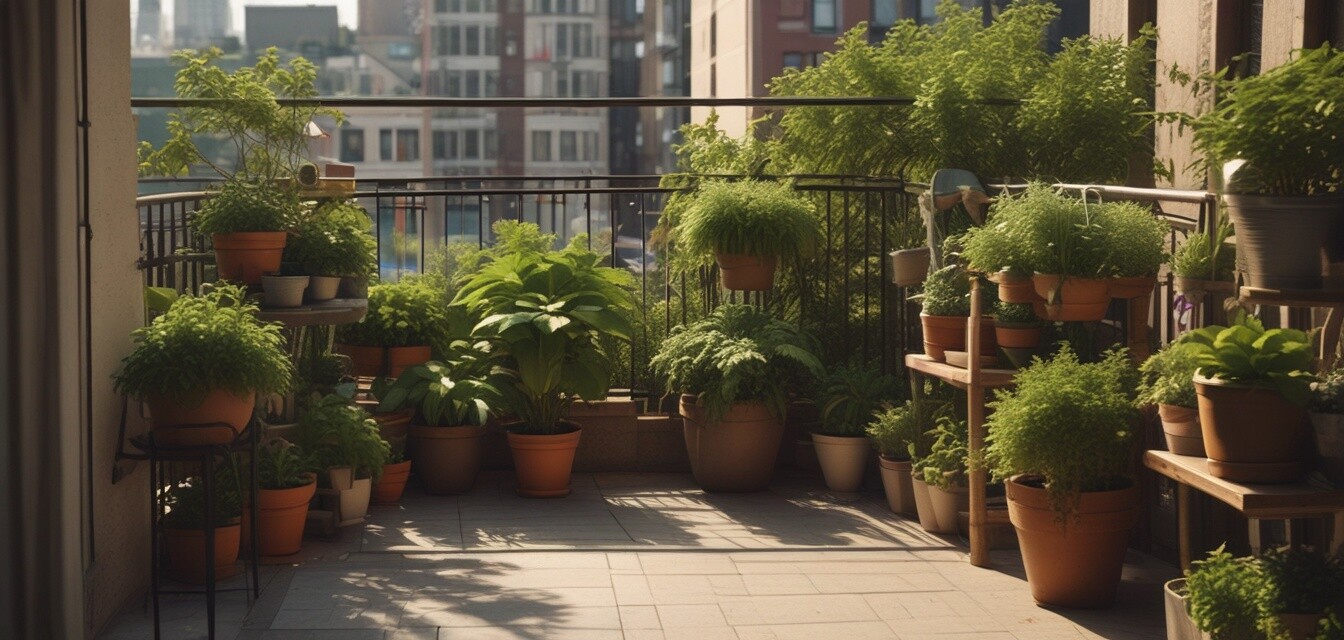
The rise of organic gardening in urban areas
Key Takeaways
- Organic gardening promotes healthier living and environmental sustainability.
- Urban areas are adopting innovative techniques for growing organic plants.
- Balcony gardens can provide fresh produce and improve air quality.
- Community gardens and local organizations are essential for supporting urban gardeners.
- Awareness and education about organic practices are on the rise.
As the world shifts towards sustainable living and healthier eating habits, organic gardening has begun to take root in urban settings. Balcony gardens, in particular, are emerging as a popular trend, allowing city dwellers to grow their own fresh produce while making a positive impact on the environment. This article will explore the trends and benefits of organic gardening in urban areas, particularly in balcony spaces.
Understanding organic gardening
Organic gardening is a method of growing plants without the use of synthetic fertilizers, pesticides, or genetically modified organisms (GMOs). The focus is on creating a natural ecosystem that supports biodiversity and soil health. With many people becoming more health-conscious about what they consume, the demand for organic produce is increasing.
The benefits of organic gardening in urban areas
Organic gardening offers numerous benefits, especially in city environments:
- Healthier produce: Homegrown organic fruits and vegetables are free from harmful chemicals and offer superior flavor.
- Environmental sustainability: Organic practices help preserve biodiversity and minimize pollution.
- Improved air quality: Plants naturally purify the air, contributing to better environmental conditions in urban areas.
- Stress relief: Gardening can be a therapeutic activity that reduces stress and enhances mental well-being.
- Community engagement: Joining community garden programs can foster relationships among city dwellers.
Trends in organic balcony gardening
Urban gardening enthusiasts are continuously seeking ways to adapt to their surroundings. Here are some notable trends observed in the rise of organic balcony gardening:
Vertical gardening
Vertical gardens utilize wall space effectively and allow for a greater variety of plants in limited areas. This trend is ideal for balconies where floor space is limited but vertical height is available.
Hydroponic systems
Hydroponics are becoming increasingly popular among urban gardeners, as they enable soil-less growing. This method conserves water and allows for year-round cultivation.
Container gardening
Using containers instead of traditional garden beds allows for flexibility and easy mobility. This style is perfect for balconies where space and layout may vary.
Innovative tools and techniques
Many gardeners are embracing innovative tools to make organic gardening easier and more efficient. Below is a comparison of some effective gardening tools:
| Tool | Benefits | Ideal for |
|---|---|---|
| Self-watering pots | Reduces the need for frequent watering | Busy urban gardeners |
| Smart gardening gadgets | Provides data on soil moisture and light levels | Tech-savvy gardeners |
| Compost bins | Helps recycle kitchen scraps into nutrient-rich soil | All urban gardeners |
Community involvement
Community gardens are an essential component of urban organic gardening. They offer a space for individuals to learn, share, and grow together. Several local organizations provide resources and support, making it easier for new gardeners to get started. For more information on resources available to urban gardeners, visit our Gardening Tips page.
Final thoughts
The rise of organic gardening in urban areas represents a shift towards more sustainable living practices. By utilizing vertical gardening techniques, hydroponic systems, and innovative gardening tools, urban dwellers can create flourishing balcony gardens filled with fresh produce. Join the movement and contribute to the green revolution in your city!
Pros
- Promotes sustainable living.
- Enhances urban biodiversity.
- Provides a rewarding hobby.
- Encourages community engagement.
Cons
- Requires initial investment in tools and supplies.
- Space limitations can restrict plant variety.
- Weather conditions can affect growth.
If you're interested in learning more about balcony gardening, check out our pages on Balcony Accessories and Container Plants. Happy gardening!